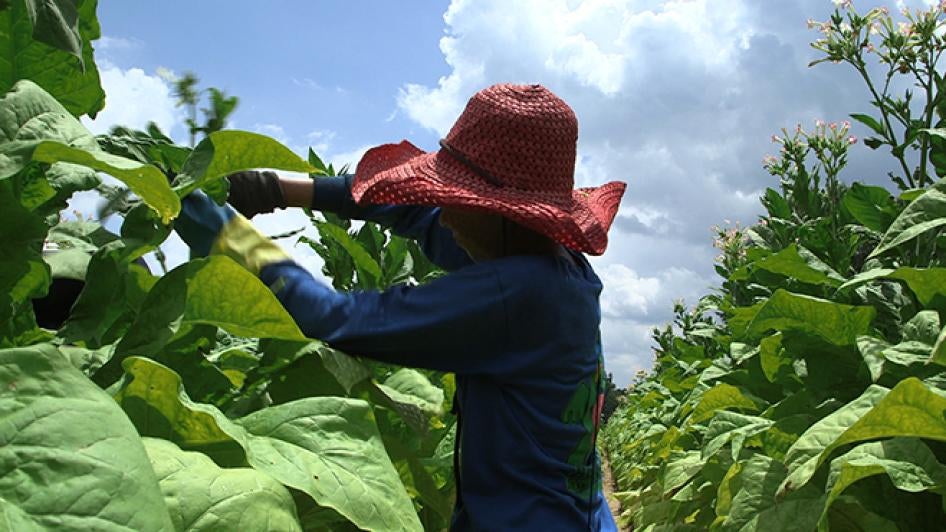I’ve interviewed more than 100 child farmworkers in the United States, and far too many of them have told me stories of being exposed to pesticides at work. Sixteen-year-old Theo D. said he used a backpack sprayer to apply an insecticide on a tobacco farm in Virginia. “I got home and felt dizzy and started puking,” he said.
Hopefully, we’ll hear fewer of these stories in the future, as yesterday the US Environmental Protection Agency (EPA) announced stronger regulations aimed at protecting farmworkers from pesticides.
For the first time, the EPA’s Agricultural Worker Protection Standard will ban children under 18 from handling pesticides in fields where they work and from re-entering fields where pesticides have recently been sprayed. The new rules will also improve pesticide safety training and protective equipment.
These changes are long overdue, and advocates spent more than two decades pushing the EPA to act.
The EPA estimates there are between 1,800 and 3,000 reported cases of occupational pesticide exposure each year among all farmworkers, but many more incidents go unreported. Yet very few of the children I interviewed were given any kind of pesticide training. Often, they weren’t even told when someone was spraying pesticides in a field nearby. As children, they didn’t always know how to remove themselves from dangerous situations, especially when it involved challenging the adults in charge.
The EPA initially proposed a minimum age of 16 for workers to handle pesticides. This would have been a big mistake. The brains and bodies of children – even at 16 or 17 – are still maturing, and exposure to toxic pesticides could have lasting consequences. Human Rights Watch, along with many others, called for stronger protection. In the final version of the regulations, EPA set the minimum age at 18, recognizing “that adolescents’ bodies and judgment are still developing,” though farm owners’ family members are exempt.
The changes announced yesterday will not ensure all farmworkers have safe workplaces. Under US law, farmworkers are denied the right to collective bargaining. Also, child farmworkers are permitted to work from younger ages, for longer hours, and in more hazardous conditions than children working in any other sector. Until these disparities are addressed, farmworkers will remain vulnerable to illness, injury, and exploitation.
But with the revisions to the Worker Protection Standard, hired workers under age 18 won’t be permitted to handle and apply toxic pesticides anymore. More workers will have access to better pesticide training and more effective protective gear. With careful implementation and strong enforcement – in collaboration with farmworkers and advocates – this could be an important step forward.










